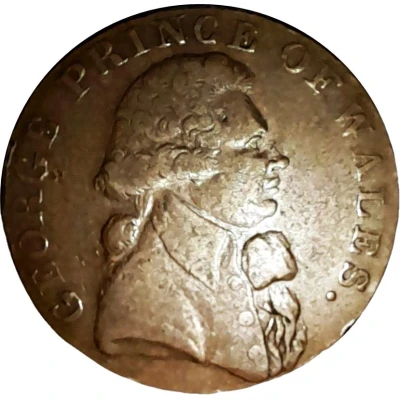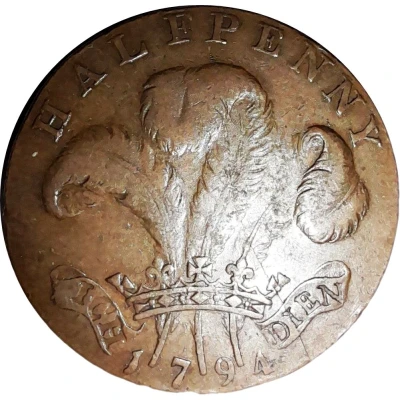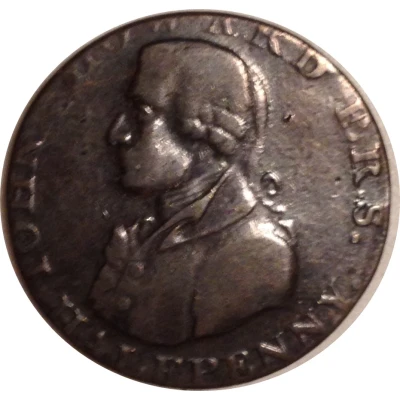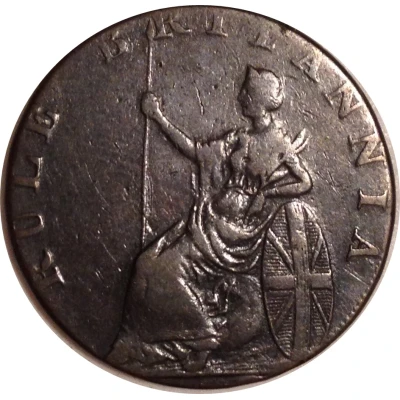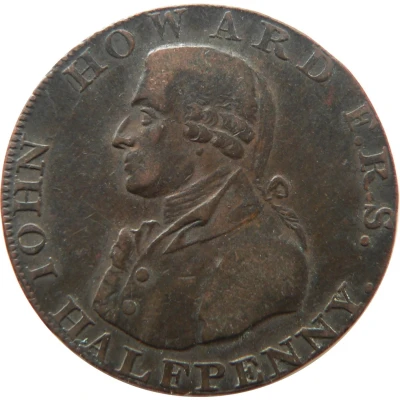
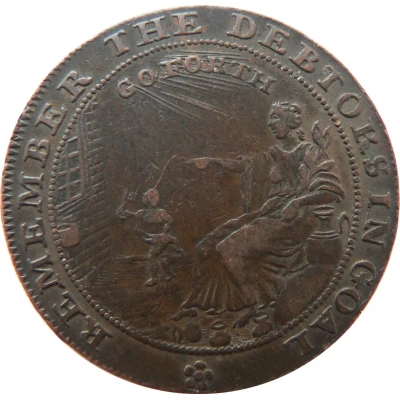

½ Penny Somerset - Bath / John Howard ND
1794 year| Copper | 9.13 g | 28.2 mm |
| Issuer | United Kingdom (United Kingdom, British Overseas Territories and Crown Dependencies) |
|---|---|
| King | George III (1760-1820) |
| Type | Token |
| Year | 1794 |
| Value | ½ Penny (1⁄480) |
| Currency | Conder tokens (1787-1797) |
| Composition | Copper |
| Weight | 9.13 g |
| Diameter | 28.2 mm |
| Thickness | 1.2 mm |
| Shape | Round |
| Technique | Milled |
| Orientation | Coin alignment ↑↓ |
| Demonetized | 1797 |
| Updated | 2024-10-08 |
| Numista | N#109495 |
|---|---|
| Rarity index | 82% |
Reverse
Beaded circle containing a female (Benevolence) seated on an urn right. Left arm has a laurel branch resting on it. Right hand raised in pointing to a barred window, directing her messenger left. He is a semi-nude figure with flowing scarf, running towards the prison to open a gate, holding a key in his raised right hand. In foreground are some urns, and in the sky is radiating lettering. Lettering outside circle with a small ornament below, toothed border
Script: Latin
Lettering:
REMEMBER THE DEBTORS IN GOAL *
GO FORTH
Engraver: Thomas Wyon the Younger
Edge
Plain with incuse lettering.
Note: varieties exist (see below)
Script: Latin
Lettering: PAYABLE AT ANGLESEY LONDON OR LIVERPOOL
Comment
Manufacturer: William Lutwyche. Note the reverse has an error where GOAL should be GAOL spelling.
John Howard's life work was the study of prisons, which culminated in his book: "The State of the Prisons in England and Wales", published in 1777.
Interesting fact
One interesting fact about the Token ½ Penny (Somerset - Bath / John Howard) ND (1794) coin is that it was issued during a time of severe coinage shortages in the United Kingdom, particularly in the west of England. The coin was minted by John Howard, a private individual, and was one of many tokens issued by local merchants and traders to address the shortage of official currency. Despite its small denomination, the coin was made of copper, which was a relatively valuable metal at the time, reflecting the scarcity of official coins and the need for alternative forms of currency.
